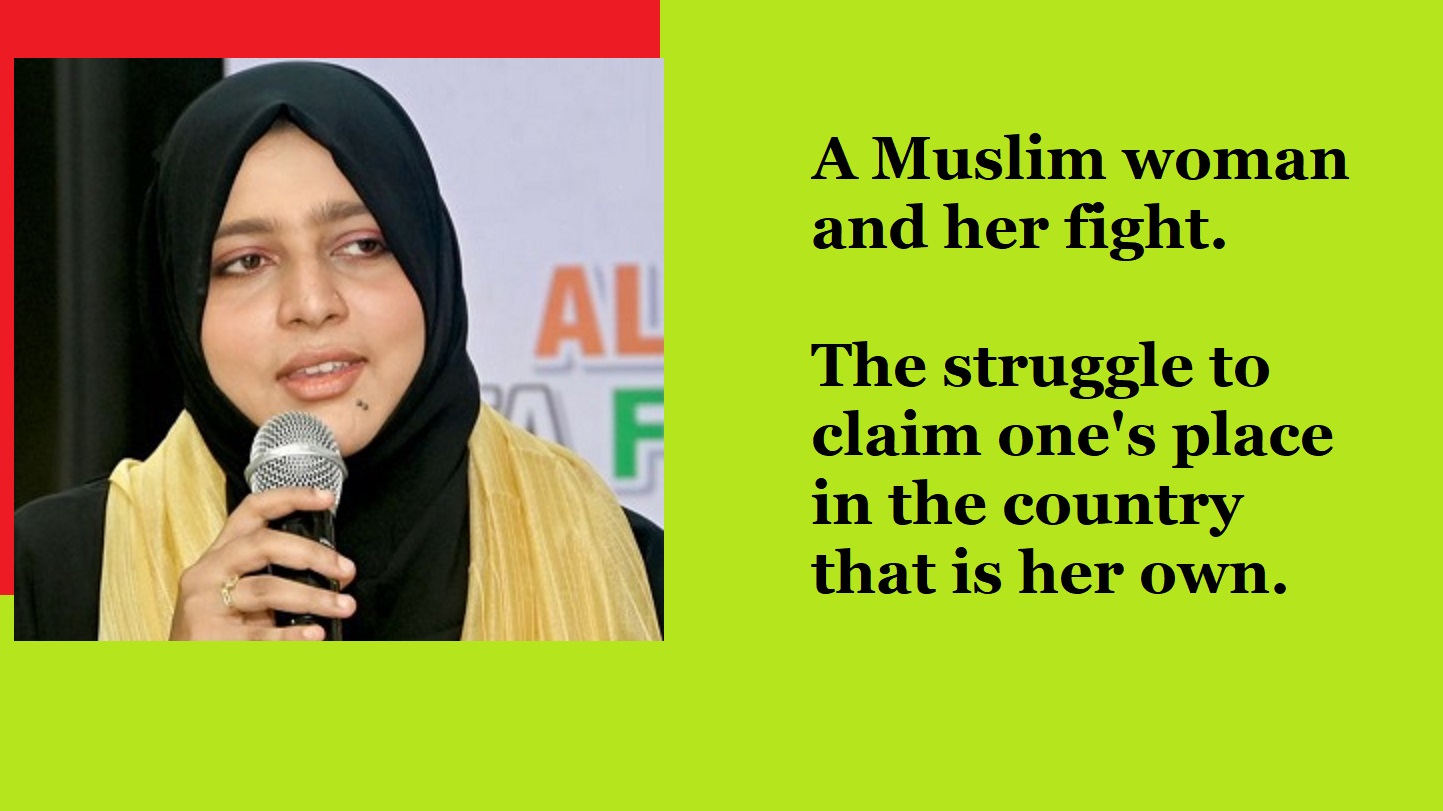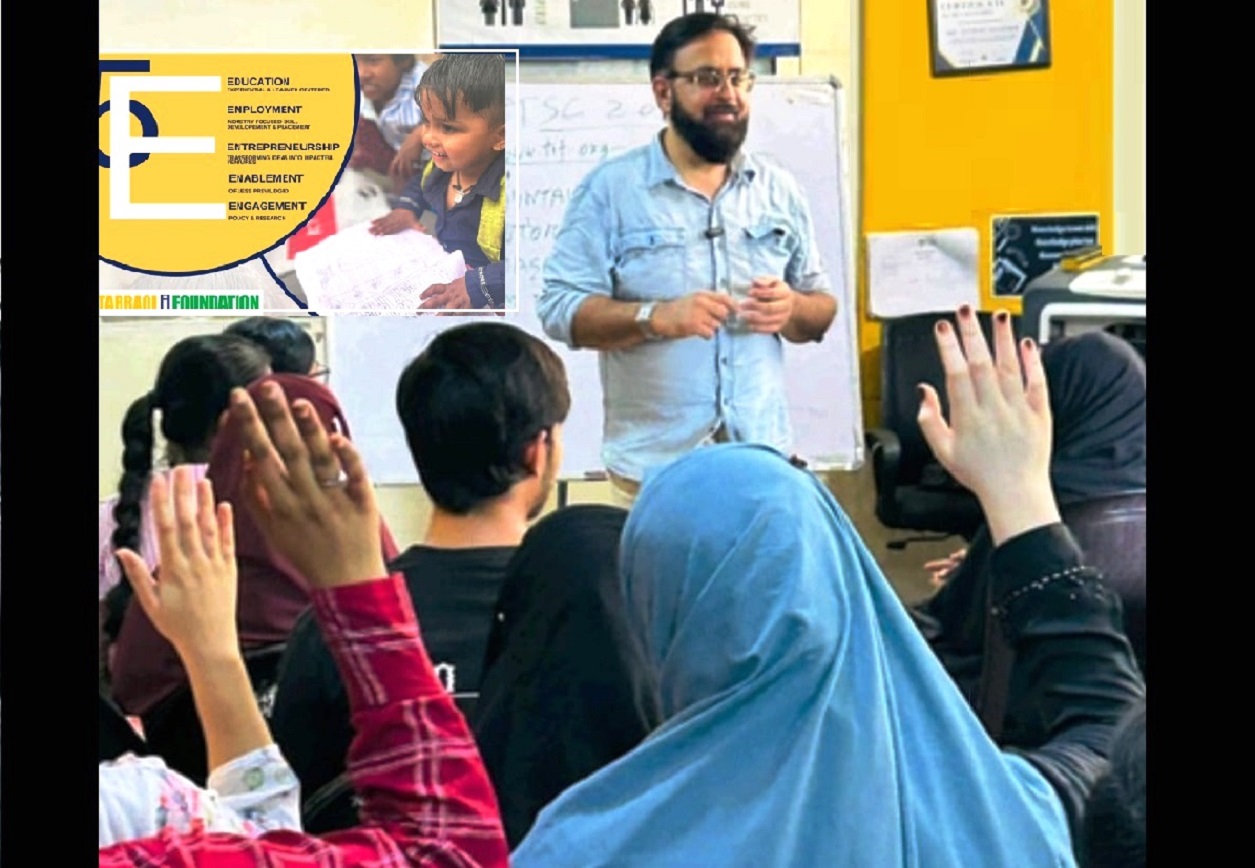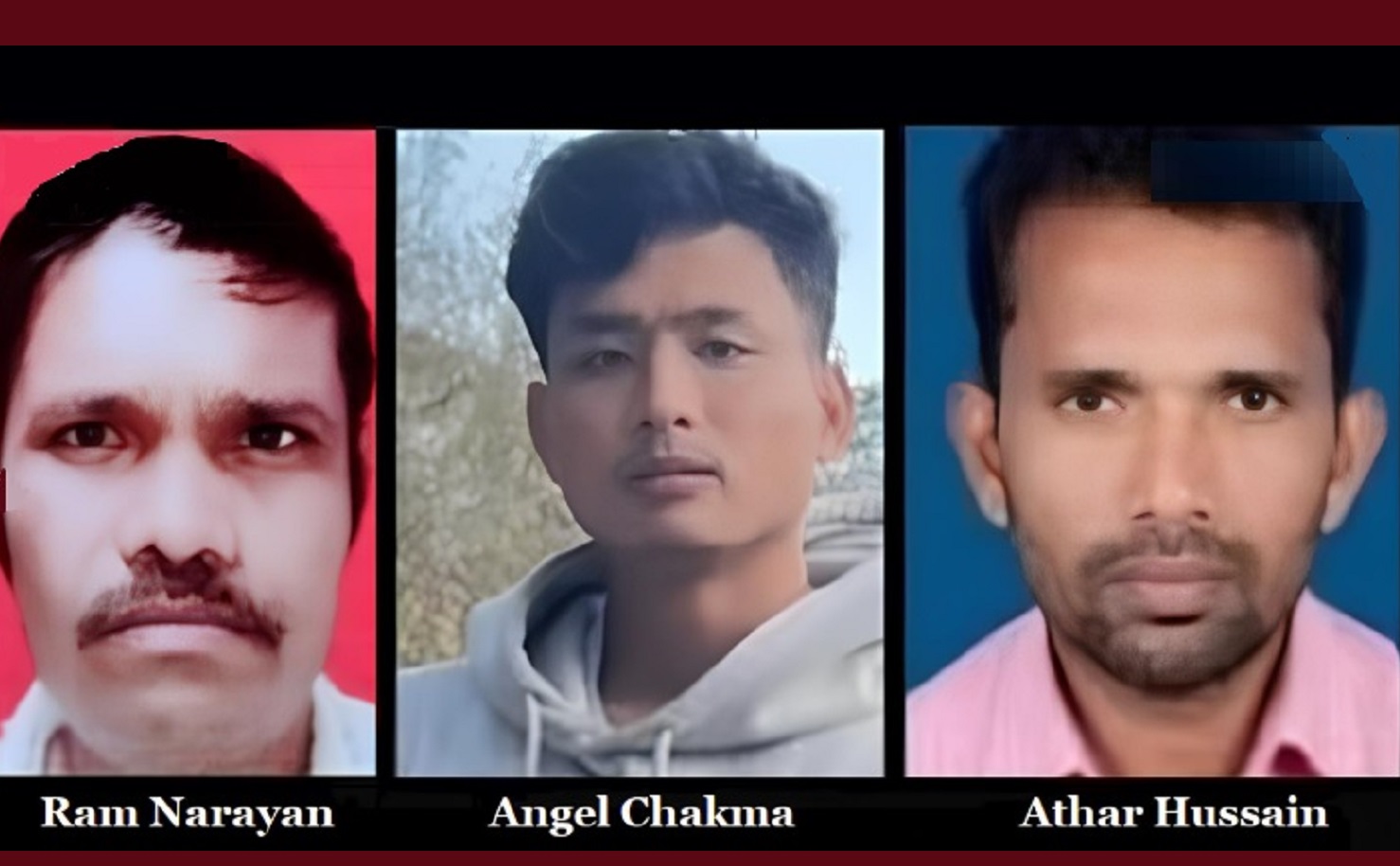Noor Mahvish
Every morning, we’re taught to say “Good morning” with a smile a ritual that carries the promise of hope, a fresh start, and a shared humanity. In classrooms, homes, and towns across the country, this greeting is a small act of unity, a nod to the idea that we all begin the day together.
But for me, a Muslim woman among India’s 200 million Muslims, mornings are no longer about hope. They begin with the weight of yesterday’s news: another hate crime, another home demolished, another life lost to a mob’s fury. Before I even step outside, I’m reminded that my identity my name, my faith, my existence is a battleground in the country I call home.
For as long as I can remember, being a Muslim has meant carrying a quiet weight an identity that invites scrutiny, suspicion, and, too often, hostility. In the land I call home, where my ancestors prayed, built, and dreamed, Muslims have always navigated a world that questions our place.
But over the past 10–12 years, this targeting has transformed into something far more sinister. Hate crimes against Muslims are no longer just acts of violence; they are spectacles glorified, praised, and recorded for the world to see. As a Muslim woman, I wake each morning to this reality, my heart heavy with headlines of lynching incidents, demolitions, and arrests, each one a reminder that my faith, my name, my existence, is a target in the country I love.
The ritual of saying “Good morning” feels hollow now, a childhood lesson drowned out by the noise of hate.
As a Muslim I walk through life carrying a fragile identity, one that is both a source of pride and a mark of vulnerability. On crowded buses, in quiet classrooms, or in the bustling streets of cities, I am acutely aware of how my presence is perceived.
It is to live under a fractured lens, where the image of who we are is distorted by suspicion, fear, and a growing tide of hostility. This is the land of my ancestors, where their prayers echo in mosques, their poetry lingers in Urdu couplets, and their contributions shape the nation’s culture. Yet, it feels less like home and more like a place where my belonging is constantly questioned.
The Paradox of Home: A Muslim’s Place in India
Constitution promises equality, its ancient ethos of Vasudhaiva Kutumbakam the world is one family speaks of unity. But for its Muslim population, one of the largest in the world, that promise feels like a fading dream. We are not outsiders.
Our roots are deep in this soil, woven into its history through art, architecture, music, and sacrifice. From the domes of the Taj Mahal to the qawwalis at Hazrat Nizamuddin Auliya’s tomb, from the freedom fighters who bled for independence to the everyday citizens building this nation, Muslims are inseparable from India’s story. Yet, we are forced to prove our loyalty, to justify our existence, to navigate a society that increasingly sees us as threats.
The pain is collective. When a Muslim is attacked for their name, their attire, or a baseless rumor, the wound cuts through us all. The grief is shared, but the silence that follows—from leaders, institutions, and sometimes even neighbors is deafening. To be a Muslim in India is to carry this burden while living an ordinary life: going to work, raising children, praying, dreaming all under the shadow of fear.
The Escalating Climate of Hate
To be a Muslim in India is to carry a legacy of violence hate crimes that span decades, now more frequent, more glorified, and brazenly recorded by the perpetrators themselves. What once simmered on the margins has moved to the mainstream, with lynching incidents, demolitions, and public assaults often met with silence-or even celebration.
The 2015 lynching of Mohammad Akhlaq marked a chilling shift, where a rumor about beef became a death sentence. Since then, violence has intensified: Junaid Khan was stabbed on a train for being a “mulla,” Pehlu Khan was killed for transporting cows, and Tabrez Ansari was tortured and forced to chant Hindu slogans before he died—his murderers filmed the act. These are not isolated crimes; they are performances of dominance.
In recent years, state complicity has deepened. The 2020 Delhi riots, “bulldozer justice” demolitions, and the 2024 hate speech surge all point to a system that enables and emboldens anti-Muslim hate. Even intellectual dissent is criminalized, as seen in the arrest of Professor Ali Khan Mahmudabad. In every case, the message is clear: Muslim identity itself is grounds for suspicion, humiliation, or violence.
The arrest of Professor Ali Khan Mahmudabad, a scholar at Ashoka University, in May 2025. His offense was a social media post praising the Indian armed forces’ restraint in a military operation following the Pahalgam attack, while calling for equal outrage against the victims of mob lynchings and illegal demolitions crimes that disproportionately target Muslims.
His words were measured, urging unity and justice, yet they were twisted into accusations of sedition and communal disharmony. Arrested from his Delhi home without proper legal process, he faced judicial custody before being granted interim bail. His case sent a message: even intellectual dissent from a Muslim is dangerous, a threat to be silenced.
Days later, in Aligarh, Uttar Pradesh, another horror unfolded. Muslim men were dragged from a police vehicle and brutally beaten by a mob of vigilantes. Videos of the assault, widely shared online, showed the men bloodied and helpless, with police officers standing by as silent spectators. This was not just violence it was a performance, a public display of power meant to humiliate and terrify. The Aligarh incident, like so many others, revealed a grim truth: law enforcement often enables, rather than prevents, such attacks?
These are not isolated events. In early 2024, the demolition of a madrasa and mosque in Haldwani, Uttarakhand, sparked clashes that left six dead and hundreds injured. In Karnataka, a mosque secretary was hacked to death in May 2025, leading to protests and resignations from Muslim leaders.
Two years earlier, in July 2023, a railway constable gunned down three Muslim passengers and a Hindu colleague on a train, reportedly targeting them for their faith. In Meerut, a student was beaten for wearing a skullcap, a simple religious symbol turned into a provocation. These incidents form a pattern, a tapestry of hate woven into the fabric of daily life. The fight is for dignity, for equal rights, amid the yearning for a sense of belonging.
[Noor Mahvish is an advocate and has been a human rights defender. She practices in Allahabad High Court. This is the first part of the article. The second part would be published, later]




